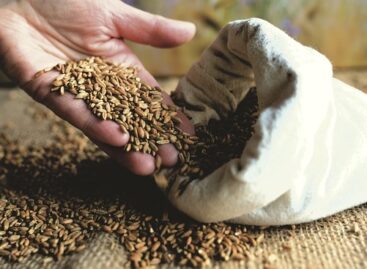A plant-based diet can reduce the risk of bowel cancer in men by 22 percent
A plant-based diet can reduce the risk of colon cancer in men by 22 percent, according to new research – the online edition of The Guardian cited the results of a large-scale American study.

(Photo: Pixabay)
A study of nearly 80,000 American men found that a diet rich in vegetables, whole grains, oilseeds, and legumes may reduce men’s bowel cancer risk compared to men who ate the least amount of these healthy plants. In the case of the 93,000 women participating in the research, this connection was not established. According to the researchers, the link is more evident in men, who already have a higher chance of developing bowel cancer. The study was published in the medical journal BMC Medicine. Colorectal cancer is the third most common form of cancer worldwide, occurring in 1 in 23 men and 1 in 25 women during their lifetime – wrote the authors of the study, colleagues from Kyonghi University in South Korea.
The subject has already been researched before
Previous research has shown that a plant-based diet may have an effect in the prevention of colon cancer, but the effect was not clear. “Our results suggest that a healthy, plant-based diet is related to the risk of colon cancer,” they wrote. For the study, participants were asked how often and in what amounts they consumed certain foods and beverages based on a list of more than 180 items. Foods are of healthy plant origin (whole grain cereals, fruits, vegetables, vegetable oils, legumes, tea, coffee), less healthy plant origin (refined cereals, fruit juices, potatoes, added sugar) and animal origin (animal fat, dairy products, eggs, fish and marine animals, meat) were classified into food groups. “We hypothesize that the antioxidants in fruits, vegetables, and whole grains act against chronic inflammation that leads to cancer, thereby reducing the risk of cancer,” the researchers wrote.
The average age of the male participants was 60, and the average age of the female participants was 59.
MTI
Related news
Global trends – food industry insights
In collaboration with experts from Kantar, ProtéinesXTC and Circana, SIAL…
Read more >World market outlook: grain market forecast 2024 October
Based on the latest October forecast of the FAO (Food…
Read more >Marketplaces generate 69% of European cross-border sales
In the financial year 2023/2024, the whole European online cross-border…
Read more >Related news
DélKerTÉSZ: record quantities of Hungarian vegetables in supermarkets
DélKerTÉSZ sold a record volume of Hungarian vegetables to domestic…
Read more >Anora Group’s expansion in the Baltic region
In order to strengthen its position in the Baltics, premium…
Read more >Prices rose by 3.7% in November
Following a 3.2% year-on-year increase in October, consumer prices in…
Read more >







